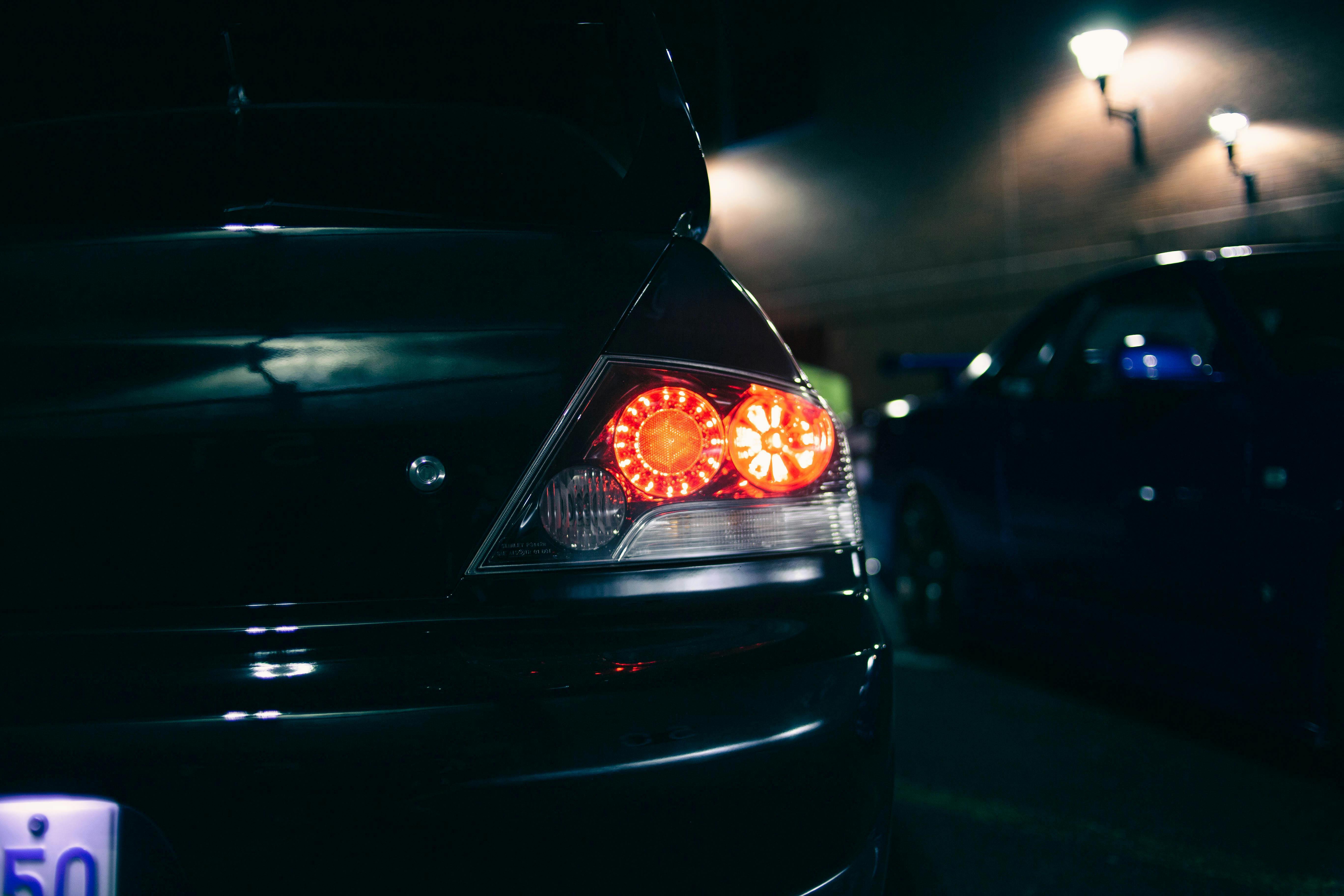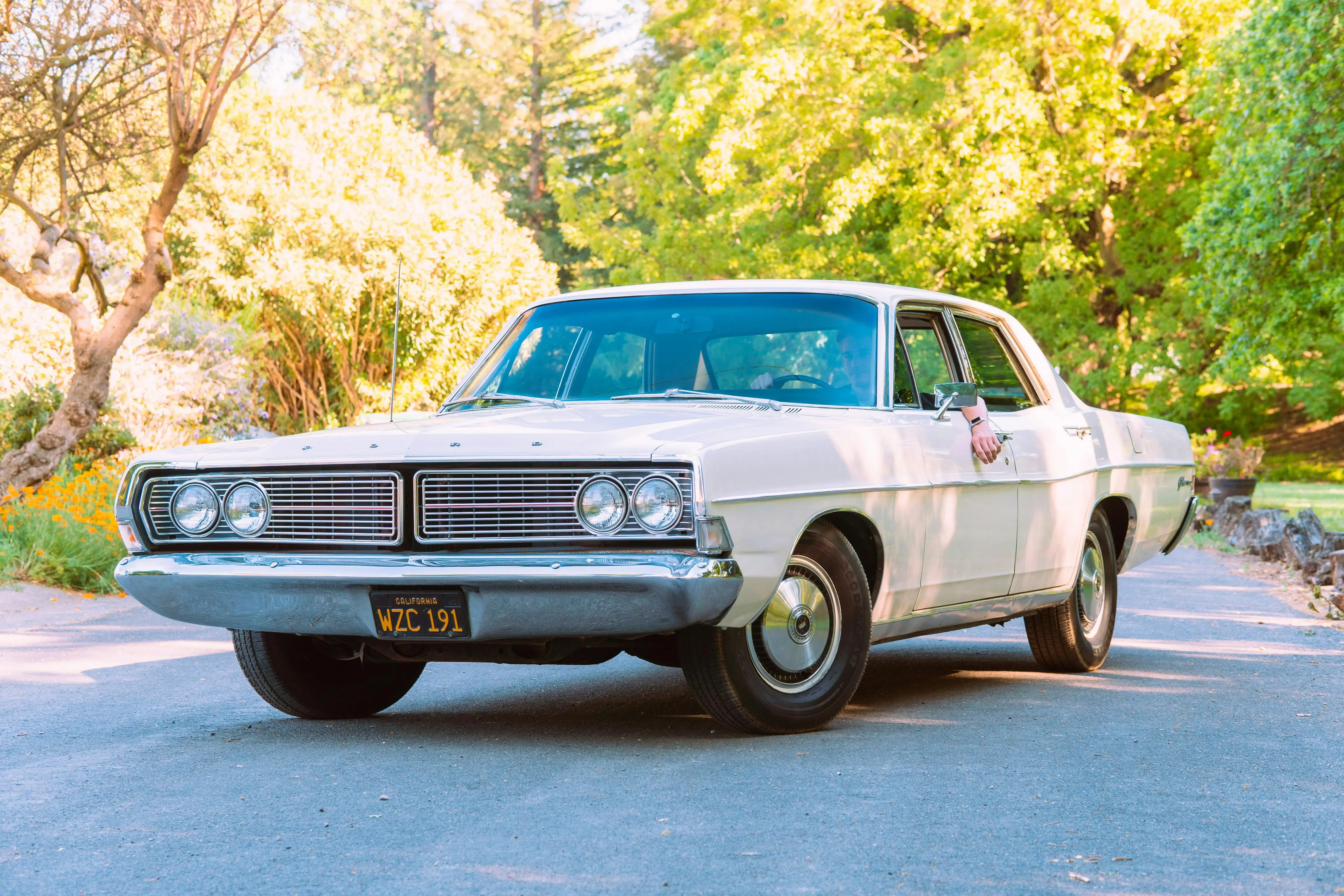Panama City is one of Central America’s most active vehicle-import markets, and the cars you see on Panama car dealerships lots typically follow a clear pipeline—from sourcing in the U.S. to export documentation, ocean transport, and local release. Whether you’re a dealer, importer, or working with a car broker, understanding how inventory moves (and where delays and hidden costs appear) helps you choose the right sourcing channel, plan timelines, and keep transactions compliant from the U.S. port to the Panama City showroom.
Panama Car Dealerships & Import Pipeline: How Vehicles Reach Panama
This comprehensive guide explores Panama City's used car market from the importer's perspective, covering dealer evaluation strategies for sourcing quality imported vehicles, Panama's vibrant automotive enthusiast community and events, and the complete logistics journey vehicles undertake from American ports to Panamanian dealer showrooms—critical knowledge affecting pricing, selection, and operational success in Panama's competitive automotive import market.
How to Choose a Used Car Dealer in Panama City: Importer Edition
Whether you're a Panamanian dealer sourcing inventory from American auctions, an American exporter seeking reliable Panama partners, or an importer establishing dealership operations, selecting the right dealer relationships requires understanding Panama's unique automotive import dynamics. Partnering with trusted vehicle exporters like West Coast Shipping ensures your U.S.-to-Panama supply chain operates smoothly with professional documentation handling, reliable logistics coordination, and customs expertise.
Evaluating Import-Focused Dealerships
Not all Panama City used car dealers operate equally when it comes to imported vehicle expertise—identifying dealers with proper import experience, customs knowledge, and compliance capability separates successful partnerships from problematic relationships.
Before buying, make sure you’re working with the right partner. Read our in‑depth guide on how to choose a used car dealer in Panama City to learn how to verify import expertise, documentation, and pricing transparency.
Key Import Expertise Indicators:
-
Established Import History: Dealers with proven track records importing American vehicles understand U.S. documentation requirements, Panama customs procedures, and proper vehicle eligibility verification
-
Customs Broker Relationships: Professional dealers maintain established relationships with licensed Panama customs brokers facilitating smooth import clearance
-
U.S. Auction Access: Dealers sourcing inventory from American auctions (Copart, IAAI, Manheim) demonstrate sophistication and scale in import operations
-
Documentation Transparency: Reputable importers provide complete import documentation including customs clearance papers, original U.S. titles, and duty payment receipts
-
Reliable U.S. Export Partners: Experienced dealers work with trusted vehicle exporters like West Coast Shipping who handle complete U.S. export procedures, shipping logistics, and Panama delivery coordination
Red Flags to Avoid:
-
Dealers unable to provide original U.S. title documentation
-
Vague or incomplete answers about vehicle import history
-
Reluctance to show customs clearance paperwork
-
Suspiciously low prices suggesting potential gray market or irregular import channels
-
Dealers attempting to import salvage-titled vehicles for on-road use (prohibited in Panama)
Verifying Legal Import Compliance
Panama's vehicle import regulations establish specific eligibility criteria affecting which vehicles dealers can legally import and sell.
Critical Compliance Factors:
Age Restrictions: While enforcement varies and official regulations sometimes present conflicting information, the de facto practice typically limits mainstream vehicle imports to no older than 10 years from manufacturing date. Dealers should verify current enforcement with Panama customs authorities, though this 10-year guideline generally applies to standard passenger vehicles.
Drive Configuration: Left-hand drive vehicles required; right-hand drive vehicles generally prohibited with rare exceptions—ensure any dealer inventory complies with this clear restriction.
Salvage Title Prohibition: Panama generally disallows salvage vehicles for public road use. While dealers may technically import salvage vehicles for parts extraction or repair-and-export operations, resale for on-road use presents significant legal risks. Reputable dealers avoid salvage imports entirely or clearly designate them as parts-only vehicles.
Vehicle Condition Standards: Imported vehicles must pass Panama's safety and emissions inspections—dealers should demonstrate knowledge of these requirements and vehicle preparation processes.
Title Status Verification: Vehicles must have clean U.S. titles without salvage designations, liens, or title washing indicators—dealers should verify title status before importing.
Learn complete Panama import requirements in our step-by-step guide to importing cars into Panama.
Assessing Dealer Inventory Sources
Understanding where Panama City dealers source their American inventory reveals operational sophistication and potential quality variations.
Primary U.S. Sourcing Channels:
U.S. Auction Houses: Professional dealers increasingly source vehicles from major American auctions including Copart (salvage and insurance vehicles—though note salvage restrictions for Panama road use), IAAI (insurance auto auctions), and Manheim (dealer wholesale auctions)—providing access to high-volume inventory at wholesale pricing.
Private U.S. Purchases: Some dealers maintain U.S.-based buyers or partnerships sourcing vehicles from private sellers, Craigslist, Facebook Marketplace, or regional dealerships.
Direct Consumer Imports: Dealers sometimes facilitate individual customer imports when clients identify specific vehicles requiring professional import coordination through experienced exporters like West Coast Shipping.
Quality Implications: Auction-sourced vehicles require careful inspection and reconditioning—reputable dealers transparently disclose vehicle history and provide comprehensive mechanical inspections before retail sales.
The Role of Professional U.S. Exporters
Successful Panama dealers rely on trusted American vehicle exporters managing complex U.S.-side logistics, documentation, and shipping coordination.
West Coast Shipping's Dealer Support Services:
-
Complete U.S. Export Documentation: Professional handling of all U.S. Customs export requirements, title processing, and commercial invoicing
-
Nationwide U.S. Vehicle Pickup: Collection from auction houses, dealerships, or private sellers anywhere in the United States
-
Port Consolidation: Strategic routing through optimal U.S. ports (New York, Florida, California) for Panama shipments
-
Container Optimization: Efficient consolidation reducing per-vehicle shipping costs
-
Panama Customs Coordination: Documentation preparation meeting Panama import requirements
Professional exporters eliminate the complexity of managing U.S.-side operations from Panama, enabling dealers to focus on local sales and service rather than international logistics coordination.
Evaluating Post-Import Services
Beyond initial vehicle import, quality dealers provide essential services ensuring customer satisfaction and long-term vehicle reliability.
Critical Dealer Services:
-
Panama Registration Assistance: Professional guidance through ATTT (Autoridad del Tránsito y Transporte Terrestre) registration procedures
-
Warranty or Guarantee Programs: Some dealers offer limited warranties or mechanical guarantees providing purchase confidence
-
Maintenance and Repair Services: In-house or affiliated service capabilities for ongoing vehicle maintenance
-
Parts Availability: Access to replacement parts for American-market vehicles (sometimes challenging for specific models in Panama)
-
Title and Documentation Management: Proper handling of U.S. export documentation and Panama registration paperwork
Service Verification: Visit dealer facilities, speak with existing customers, and assess service department capabilities before establishing business relationships or making significant purchases.
Financial Transparency and Pricing Structure
Understanding complete cost structures—including import duties, taxes, reconditioning, and dealer margins—enables informed negotiations and realistic price expectations.
Total Cost Components:
-
U.S. Vehicle Purchase Price: Original acquisition cost from auction or private seller
-
Shipping Costs: Ocean freight from U.S. ports to Panama's Port of Cristobal
-
Import Duties: 15-25% of CIF (Cost, Insurance, Freight) value depending on vehicle specifications
-
ITBMS Tax: 7% value-added tax applied to duty-inclusive value
-
Customs Fees and Charges: Various processing fees, port charges, and administrative costs
-
Reconditioning Expenses: Mechanical repairs, detailing, and preparation for retail sale
-
Dealer Markup: Profit margin covering operations, overhead, and business sustainability
See complete duty calculations in our Panama import duty guide.
From Arrival to Showroom: How Imported Cars Reach Panama Dealers and How That Affects You
The logistics journey from American auction lots to Panama dealer showrooms involves multiple phases—understanding this process explains pricing structures, timeline expectations, and potential quality variations in Panama's used car market. West Coast Shipping manages every phase of this journey as a leading vehicle exporter, from U.S. pickup through Panama delivery, ensuring reliable service for dealers and importers.
Phase 1: U.S. Vehicle Sourcing and Purchase
The import process begins with vehicle acquisition at American locations—primarily auction houses, dealerships, or private sellers.
Auction Sourcing Process:
-
Dealers or their U.S.-based buyers bid on vehicles at online and physical auctions
-
Winning bidders pay auction fees, processing charges, and vehicle purchase prices
-
Vehicles held at auction facilities awaiting transportation to shipping ports
-
Documentation collected including U.S. titles, auction paperwork, and bill of sale
West Coast Shipping Role: Our team coordinates with auction facilities nationwide for efficient vehicle pickup, proper documentation collection, and secure transport to departure ports—eliminating dealer coordination challenges across U.S. time zones and logistics providers.
Timeline: 1-5 days from auction conclusion to payment completion and title processing.
Want to understand the full logistics journey from U.S. auctions to Panama showrooms? Check out our article on how imported cars reach Panama dealers—from sourcing and shipping to customs, registration, and final delivery.
Phase 2: U.S. Inland Transport to Port
Vehicles transport from auction locations throughout the United States to departure ports serving Panama routes—primarily New York, Florida, and California ports.
Transport Logistics:
-
Professional car carriers transport vehicles from inland locations to strategic departure ports
-
Open or enclosed transport depending on vehicle value and weather protection requirements
-
GPS tracking throughout domestic transport
-
Typical transit times vary by origin:
-
East Coast origins to New York: 1-3 days
-
Nationwide to Florida ports: 3-7 days
-
West Coast to California ports: 1-2 days
-
West Coast Shipping Advantage: Our nationwide pickup network collects vehicles from any U.S. location, coordinates efficient inland transport, and consolidates shipments at optimal departure ports based on Panama delivery schedules and cost efficiency.
Cost Impact: Inland U.S. transport costs absorbed in our comprehensive door-to-port pricing structure.
Phase 3: U.S. Export Processing and Documentation
Before ocean departure, vehicles undergo U.S. export compliance procedures and documentation preparation—a complex phase where professional exporters add substantial value.
Export Requirements:
-
U.S. Export Declaration: Required documentation filed with U.S. Customs and Border Protection
-
Original Title Processing: Title must be properly signed and notarized for export
-
Bill of Lading: Ocean freight documentation prepared by shipping company
-
Commercial Invoice: Detailed invoice for Panama customs valuation meeting specific format requirements
West Coast Shipping Expertise: Our export documentation team ensures complete compliance with all U.S. requirements, proper title processing, and accurate commercial invoicing meeting Panama customs standards—preventing the clearance delays caused by documentation errors.
Timeline: 2-5 business days for complete export documentation processing.
Explore comprehensive shipping services through our Panama car shipping page.
Phase 4: Ocean Freight to Panama
Vehicles ship via container methods from U.S. ports to Panama's Port of Cristobal on the Atlantic coast, with transit times and costs varying by origin port.
Container Shipping by Origin Port:
New York to Cristobal:
-
Transit Time: 6 days
-
Cost: $2,750 per vehicle
-
Advantages: Fastest Atlantic route, cost-effective Northeast consolidation
Florida to Cristobal:
-
Transit Time: 5 days
-
Cost: $4,475 per vehicle
-
Advantages: Quickest overall transit, convenient for Southeast U.S. vehicle sources
California to Cristobal:
-
Transit Time: 13 days
-
Cost: $4,400 per vehicle
-
Advantages: West Coast vehicle access, Panama Canal routing
Container Method Benefits:
-
Complete weather protection in sealed steel containers
-
Security through tamper-evident sealing
-
Accommodation of non-running vehicles
-
Consolidation options (1-4 vehicles per 40-foot container depending on sizes)
RoRo Considerations: Roll-on/Roll-off service exists primarily for large or oversized vehicles like commercial trucks, buses, construction equipment, or machinery that exceed standard container dimensions. For standard passenger vehicles, RoRo is typically not cheaper than consolidated container shipping and offers less protection and security than containerized transport. Container shipping remains the preferred method for cars, SUVs, and standard pickups.
West Coast Shipping Container Optimization: We strategically consolidate multiple vehicles per container when possible, reducing per-vehicle costs while maintaining complete protection—passing savings to dealer customers without compromising service quality.
Phase 5: Panama Customs Clearance
Port arrival triggers Panama's import procedures—the most complex and time-consuming phase affecting total import costs and timelines.
Customs Process Steps:
Documentation Submission: Customs broker files complete import declaration including all U.S. documentation and Panama-required forms prepared by West Coast Shipping's export team.
Duty and Tax Calculation: Panama customs assesses duties (15-25%), ITBMS tax (7%), and potential luxury taxes based on CIF valuation.
Physical Inspection: Vehicles undergo customs inspection verifying VIN matches documentation, checking for undeclared modifications, and confirming import eligibility. Occasionally, Panama customs may conduct additional re-inspections if VIN discrepancies appear or questions arise about documentation—though these situations remain rare when professional exporters handle paperwork properly with accurate VIN verification from the start.
Payment Processing: All duties, taxes, and fees must be paid before vehicle release from customs custody.
Release Authorization: Once cleared, vehicles released to importer or dealer for transport to final destinations.
Timeline: 3-10 business days depending on documentation completeness, inspection scheduling, and payment processing. In rare cases where customs requests re-inspection or additional verification, clearance may extend 2-5 additional days.
West Coast Shipping Documentation Advantage: Our experience with Panama customs requirements ensures documentation accuracy and completeness, including meticulous VIN verification matching all paperwork to physical vehicles—reducing clearance delays caused by paperwork errors or VIN discrepancies common when dealers manage export documentation independently. While occasional customs re-inspections can occur regardless of documentation quality, proper paperwork significantly minimizes these delays.
Phase 6: Vehicle Registration and Preparation
After customs clearance, vehicles require Panama registration and dealer reconditioning before retail sale.
Registration Requirements:
-
ATTT (Transit Authority) registration with emission and safety inspections
-
Panama license plate issuance
-
Vehicle liability verification
-
Tax identification and ownership documentation
Dealer Reconditioning:
-
Mechanical inspection and necessary repairs
-
Detailing and cosmetic preparation
-
Parts replacement for worn components
-
Final quality control before showroom display
Timeline: 5-10 days for registration completion and dealer preparation.
Total Import Timeline Impact
Understanding complete import timelines from U.S. purchase to Panama showroom availability explains dealer inventory cycles and customer wait times.
Complete Timeline Summary by Origin:
New York Origin:
-
U.S. inland transport: 1-3 days
-
Export processing: 2-5 days
-
Ocean freight: 6 days
-
Panama customs: 3-10 days
-
Registration/reconditioning: 5-10 days
-
Total: 17-34 days
Florida Origin:
-
U.S. inland transport: 3-7 days
-
Export processing: 2-5 days
-
Ocean freight: 5 days
-
Panama customs: 3-10 days
-
Registration/reconditioning: 5-10 days
-
Total: 18-37 days
California Origin:
-
U.S. inland transport: 1-2 days
-
Export processing: 2-5 days
-
Ocean freight: 13 days
-
Panama customs: 3-10 days
-
Registration/reconditioning: 5-10 days
-
Total: 24-40 days
Customer Impact: Buyers requesting specific vehicle imports should expect 3-6 week timelines minimum depending on origin—dealers maintaining ready inventory provide immediate availability but at higher cost covering carrying expenses.
How Import Logistics Affect Pricing
Every logistics phase adds costs ultimately reflected in dealer retail prices—transparency about these cost structures justifies pricing and enables informed negotiations.
Cumulative Cost Structure (Example: $15,000 U.S. auction purchase, New York origin):
-
U.S. auction purchase: $15,000
-
Auction fees and processing: $500
-
U.S. inland transport to New York port: $400
-
Shipping to Panama (NY to Cristobal): $2,750
-
Import duties (20%): $3,730 (based on CIF value ~$18,650)
-
ITBMS tax (7%): $1,566 (on duty-inclusive value ~$22,380)
-
Customs processing fees: $300
-
Registration and inspection: $400
-
Reconditioning and repairs: $1,200
-
Total landed cost: $25,846
-
Dealer markup (15-25%): $3,877-$6,462
-
Retail price range: $29,723-$32,308
Pricing Transparency: Understanding these cost components—including West Coast Shipping's competitive shipping rates from strategic U.S. ports—explains why U.S. $15,000 auction vehicles retail for $29,000-$32,000+ in Panama, justifying prices through documented expenses rather than arbitrary markups.
Calculate Your Panama Import Shipping Costs
Whether you're a dealer sourcing American inventory, an importer establishing operations, or an individual considering vehicle import, understanding complete shipping costs enables informed decisions and realistic budget planning.
West Coast Shipping specializes in U.S.-to-Panama vehicle transport through our comprehensive Panama shipping services, handling:
-
Complete U.S. export documentation and procedures
-
Nationwide vehicle pickup from any U.S. location
-
Strategic port consolidation (New York, Florida, California)
-
Container optimization reducing per-vehicle shipping costs
-
Panama customs broker coordination
-
Transparent pricing: $2,750 (New York), $4,475 (Florida), or $4,400 (California)
-
No hidden fees or surprise charges
Contact our team for customized shipping quotes, volume dealer pricing, or consultation on establishing efficient U.S.-Panama import operations.
You May Also Like
These Related Stories

How Imported Cars Reach Panama Dealers: Full Logistics Guide

How To Choose A Used Car Dealer In Panama City: Importer's Guide

-093789-edited.png?width=220&height=79&name=wcs_final_logo_(1)-093789-edited.png)
